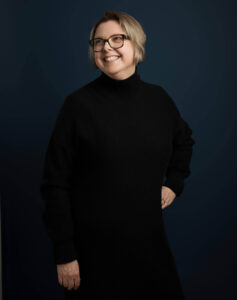Sharing what we are studying for a PhD can be one of the most intimate things we face: they are our own ideas that we have nurtured with ample effort. When meeting an experienced researcher or simply sharing our doctoral ideas with others around us, there is no shortage of advice, whether that be solicited or unsolicited.
Many people want to shape our research based on their own experiences. There is a contradiction here: all research experiences are different, as humans have distinctive ideas, approaches, and overall thinking. Accepting advice that does not apply to our reality may be something we do consciously or unconsciously, but without a doubt, it can affect us emotionally. Part of what makes us more apprehensive about the PhD than any other topic is that this research is everything to us at any moment of all the years we study it. And we already have doubts, incertitude, and a feeling of defeat; some comments can be extremely harmful if we do not separate “pertinent and useful” advice from “not applicable to me”.
Thank You, Next
A large part of research consists of listening to others. However, it is still our PhD, with our own ideas, sentiments, objectives, and also our own fears. Thus, it is our decision only to decide, for example, how much time we invest in our investigation, and the effort we put in, but also (very importantly!) when to take breaks, decompress, and gather thoughts. And, as difficult as it may sound, no one should have an opinion on these types of intimate decisions; this process has independence.
Receiving unsolicited advice can lead to other people wanting to shape our research based on what they think. It would be nice to be able to say, “Thank you for your advice; it is not useful for my reality,” or, “I recognize that you have a great experience with the general subject, but I am specializing in another approach”, and for the discussion to subside. In Latin America, there is a saying: “The courteous does not take away the brave”, which means that politeness does not fade with being audacious and bold: we can be both. The quote can be applicable in our case, as we are learners who are not leaving aside our education but are firm with others, establishing limits, and it does not make us disrespectful or impolite. But in my experience during the PhD, it does not end there: most of the time, this type of conversation where I do not wish to take their advice onboard has resulted in them being offended because of the expectation that doctoral students must always listen to others, that it is part of the experience.
I argue that while listening is entirely acceptable and to be encouraged, feeling defeated by someone else’s comments is not. We should be able to simply thank them for their comments without utilising them when we recognise they are not suitable to us, in a ‘thank you, next’ manner.
Balance
Please do not misunderstand my idea. I am not suggesting that all advice is wrong or that we should automatically reject others’ advice. We also know that most people provide us with their views with the best intentions and may just want you to avoid the same setbacks that they had at some point.
However, I return to my central point: not all experiences are equal, and someone commenting on your thesis can hurt morale. Whether the intention is good or not, the doctorate is one of the most sacred things we have created on paper (and will remain on the internet). It is ours alone. There has to be a line between gracefully accepting the relevance of specific comments, and rejecting those that make us lose morale in our own research.
Don’t Listen to Everyone
One way to stay motivated is to be very confident in our research so that others’ perspectives cannot change our own stance so easily. I have learned during my doctoral experience not to listen to everyone, not to be apprehensive about external comments, and above all, to trust every word I am writing.
Since I already agreed that I would not advise because it would be contradictory to the message of this article, I will only say that we must be resilient, like everything in the PhD. For some, the whole experience is one of considerable doubt from start to finish, which is fine. Still, if we already have enough of our limitations, there is no reason why we should listen to other people’s limitations and impose another barrier on ourselves. We can follow pertinent advice and kindly reject those that are not – but nothing, and no one, should make us doubt ourselves.






